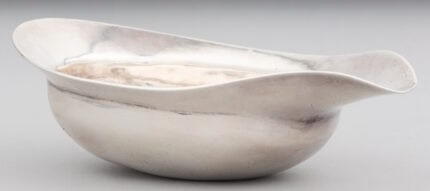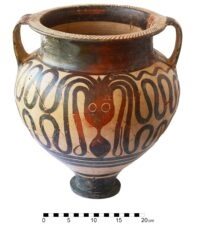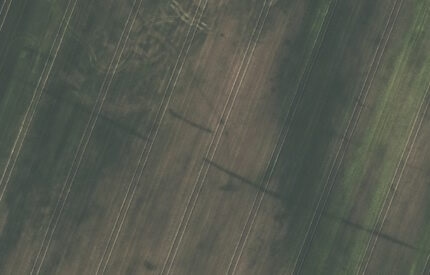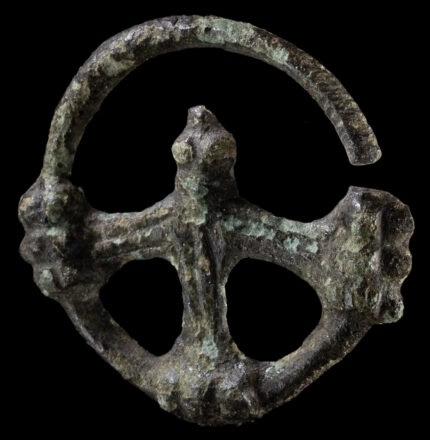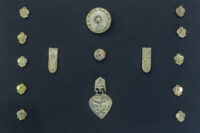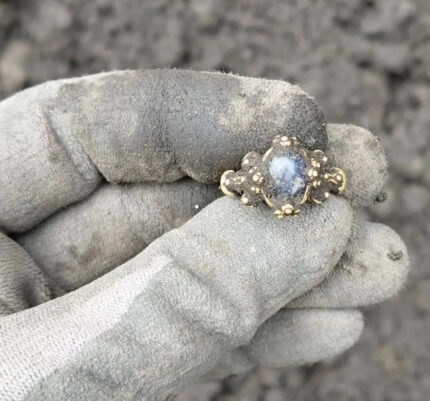Huge Hellenistic city walls discovered in Croatia –

Monumental remains of the Hellenistic-era walls of the ancient Greek city of Epetion have been discovered in the village of Stobrec near Split, Croatia. The well-preserved walls were discovered during excavations that preceded the new construction. The walls of the Greek fortification are 230 feet long and are as high as 10 feet in places, making it the most monumental and best-preserved Greek wall in Croatia.
 Epetion was founded in the 4th century BC by colonists from Issa, an early Greek colony on the Adriatic island of Vis. The Hellenistic city was built on the foundations of early Illyrian settlements and was ideally located with fertile arable lands, inland trade routes and sheltered bays for maritime trade. The colonists built dry stone walls with heavy stones to defend the city. Smaller parts of it were discovered during the first archaeological surveys of Stourbridge in 1969 and 1973.
Epetion was founded in the 4th century BC by colonists from Issa, an early Greek colony on the Adriatic island of Vis. The Hellenistic city was built on the foundations of early Illyrian settlements and was ideally located with fertile arable lands, inland trade routes and sheltered bays for maritime trade. The colonists built dry stone walls with heavy stones to defend the city. Smaller parts of it were discovered during the first archaeological surveys of Stourbridge in 1969 and 1973.
Conservators Silva Kukoč and Ivica Pleština, who oversee the site, stress that the area has long been considered to have archaeological potential. Still, the scope and significance of these findings were unexpected. Further research is planned to ensure the site is carefully studied and preserved. Minister Obuyan Korzinek assured that her ministry, together with the Split Ministry of Conservation and the Agency for the Protection of Cultural Heritage, will continue to closely monitor the ongoing excavations.
 The recent excavations are the most comprehensive survey of the ancient city since the Hellenistic walls were first excavated in 1969. In addition to long sections of defensive wall, the excavations also unearthed A megalithic building with a double door, this suggests that Hellenistic Epetion extended much farther along the coast to the north of the city walls than previously known. The archaeological team also discovered The layers of settlement date back to the Middle Bronze Age (about 3,500 years ago), extending the known period of settlement in the area by thousands of years.
The recent excavations are the most comprehensive survey of the ancient city since the Hellenistic walls were first excavated in 1969. In addition to long sections of defensive wall, the excavations also unearthed A megalithic building with a double door, this suggests that Hellenistic Epetion extended much farther along the coast to the north of the city walls than previously known. The archaeological team also discovered The layers of settlement date back to the Middle Bronze Age (about 3,500 years ago), extending the known period of settlement in the area by thousands of years.


 Anal Beads
Anal Beads Anal Vibrators
Anal Vibrators Butt Plugs
Butt Plugs Prostate Massagers
Prostate Massagers
 Alien Dildos
Alien Dildos Realistic Dildos
Realistic Dildos
 Kegel Exercisers & Balls
Kegel Exercisers & Balls Classic Vibrating Eggs
Classic Vibrating Eggs Remote Vibrating Eggs
Remote Vibrating Eggs Vibrating Bullets
Vibrating Bullets
 Bullet Vibrators
Bullet Vibrators Classic Vibrators
Classic Vibrators Clitoral Vibrators
Clitoral Vibrators G-Spot Vibrators
G-Spot Vibrators Massage Wand Vibrators
Massage Wand Vibrators Rabbit Vibrators
Rabbit Vibrators Remote Vibrators
Remote Vibrators
 Pocket Stroker & Pussy Masturbators
Pocket Stroker & Pussy Masturbators Vibrating Masturbators
Vibrating Masturbators
 Cock Rings
Cock Rings Penis Pumps
Penis Pumps
 Wearable Vibrators
Wearable Vibrators Blindfolds, Masks & Gags
Blindfolds, Masks & Gags Bondage Kits
Bondage Kits Bondage Wear & Fetish Clothing
Bondage Wear & Fetish Clothing Restraints & Handcuffs
Restraints & Handcuffs Sex Swings
Sex Swings Ticklers, Paddles & Whips
Ticklers, Paddles & Whips







